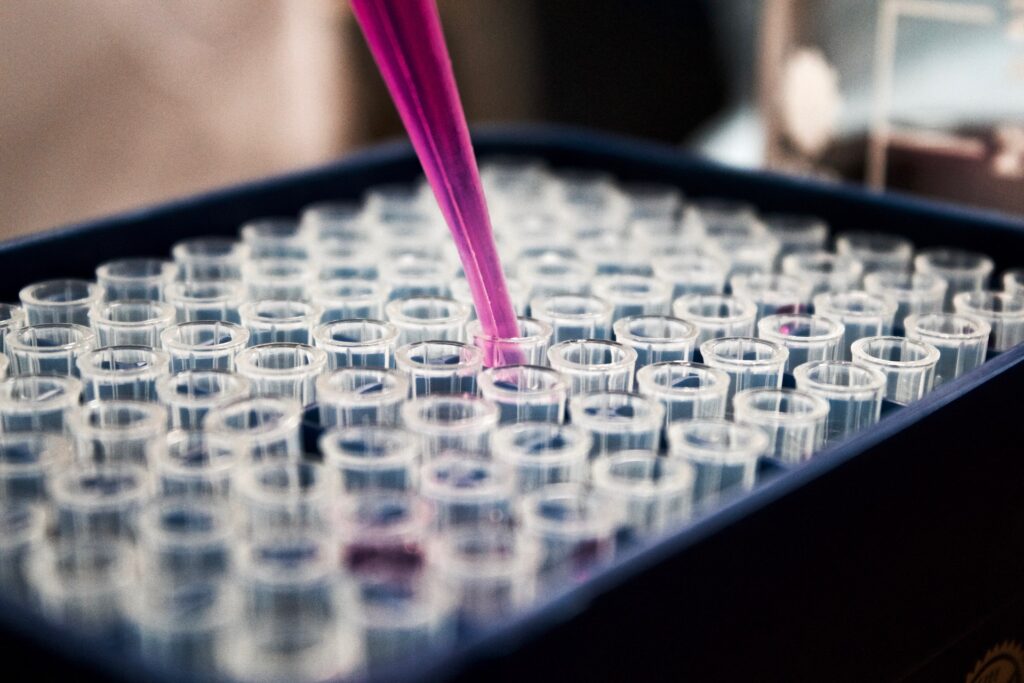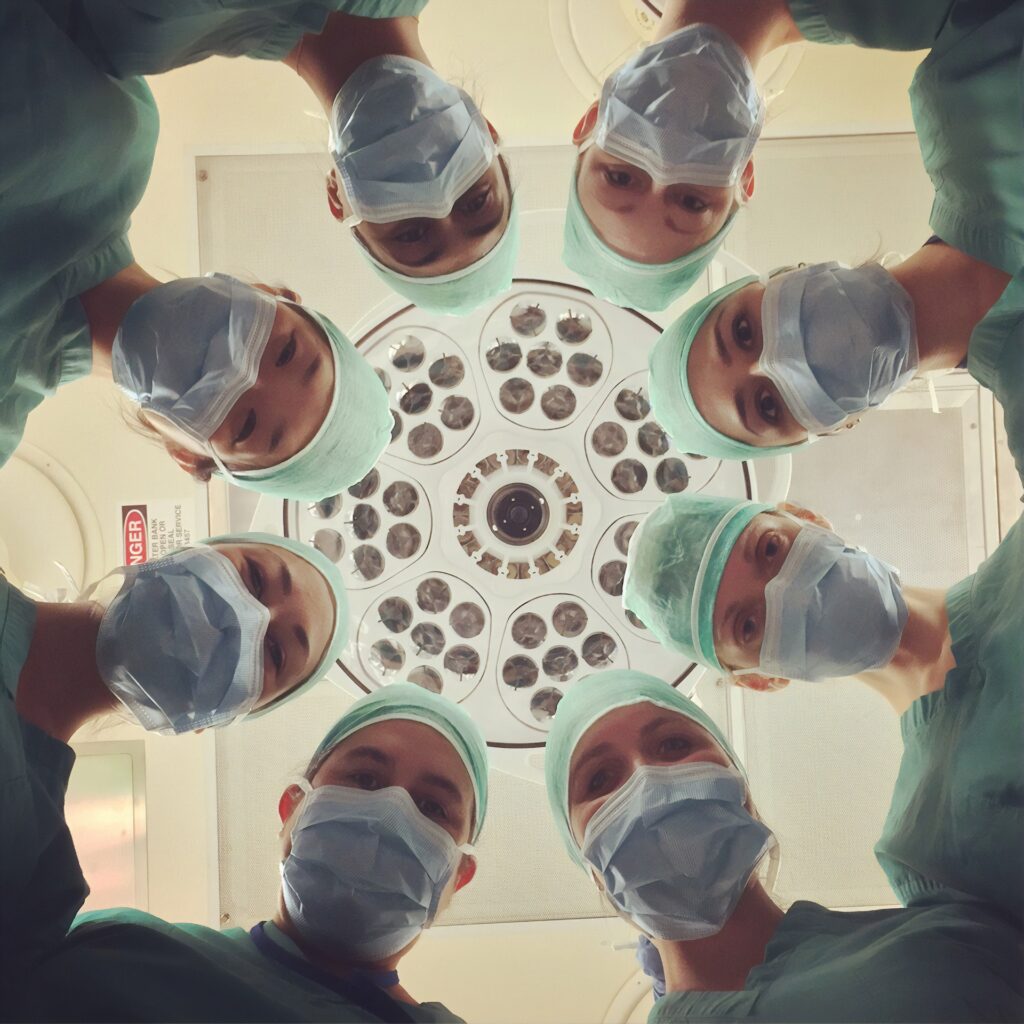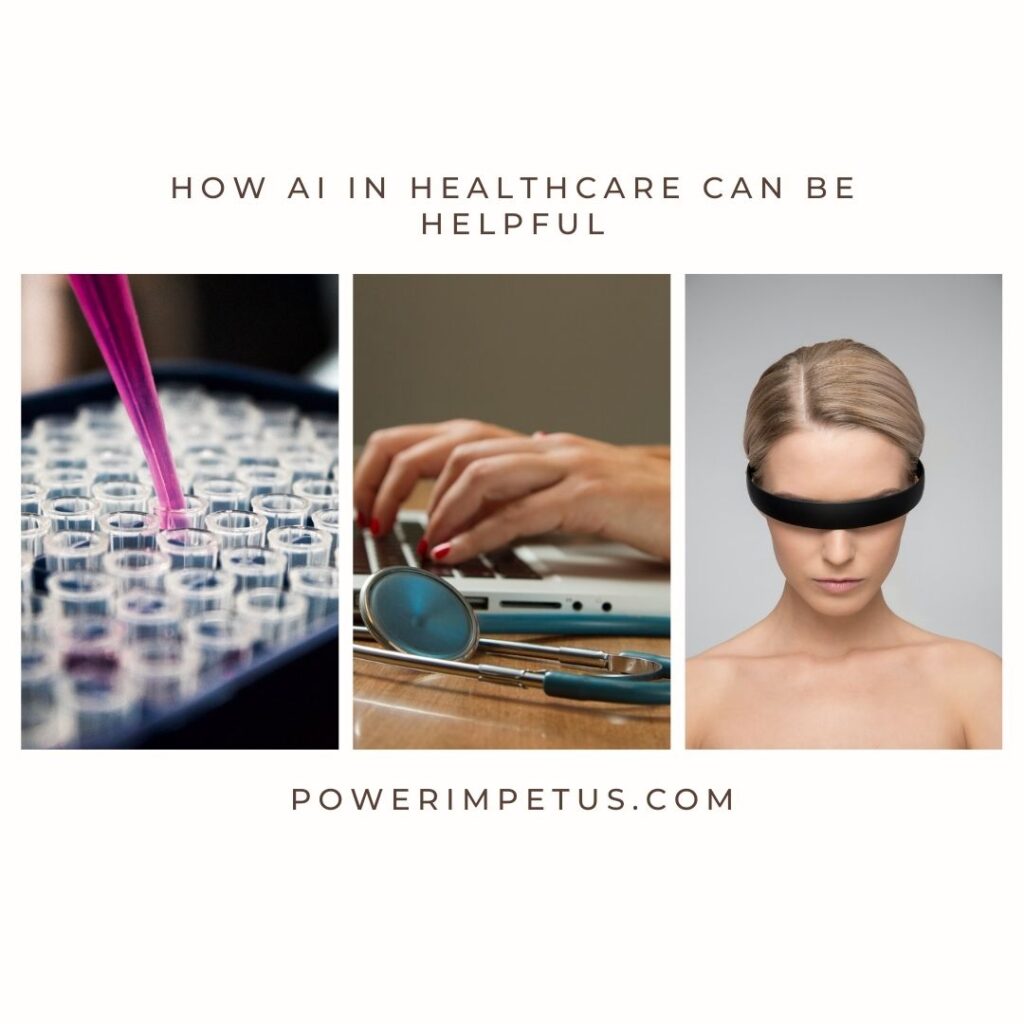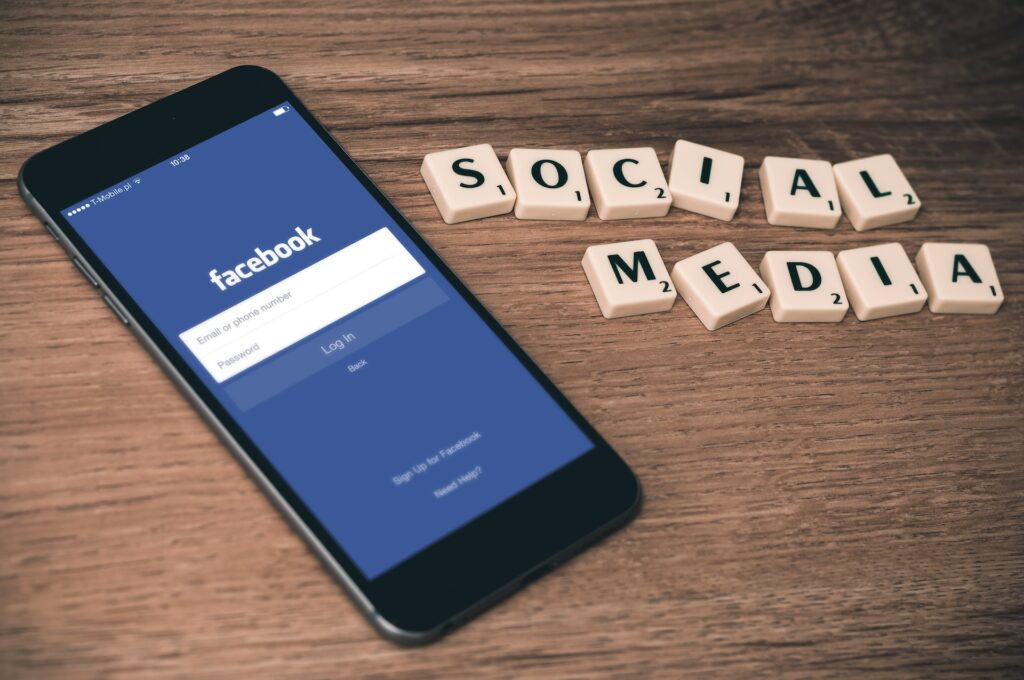We are on the verge of an Artificial Intelligence (AI)-driven revolution in healthcare. AI has limitless potential to revolutionize the healthcare industry by providing fresh approaches to persistent issues.
AI is transforming how we approach healthcare, from diagnosis and treatment to patient care and administrative duties. We will go deeply into the field of artificial intelligence (AI) in healthcare in this extensive post, covering its countless applications and the profound ways it is changing the medical scene.
Knowledge of AI in Healthcare

AI is a transformative force rather than merely a trendy term.
Fundamentally, AI in healthcare makes use of machine learning and data analytics to provide individualized insights and prediction abilities.
A wide range of technologies, including machine learning, natural language processing, and data analytics, are used in the multidimensional field of artificial intelligence in healthcare.
Fundamentally, artificial intelligence (AI) seeks to improve the effectiveness and efficiency of healthcare by enabling machines to decipher complicated medical data, forecast patient outcomes, and support healthcare workers in making decisions.
AI has a wide range of uses in healthcare, including patient care, administrative work, and diagnostics and treatment. Healthcare professionals can gain many advantages by utilizing AI, including increased illness detection accuracy, individualized treatment plans, reduced administrative duties, and predictive analytics for public health.
We will examine the various ways that AI is advancing diagnostics, enabling personalized medicine, reshaping telemedicine and remote monitoring, improving patient care, streamlining administrative tasks, addressing ethical issues, showcasing real-world applications, and imagining the future of AI in healthcare in this guide.
Advancements in Diagnostics
Thanks to AI, the diagnostics industry is undergoing a fundamental change. AI is now an essential component of the diagnostic process; it is no longer only about radiologists looking at images or pathologists looking at tissue samples.
AI diagnostic advancements
In the past, identifying medical issues required physical examination of patient histories, lab findings, and medical imaging. Healthcare experts are still necessary, but AI has greatly improved diagnosis, boosting their capacities.
Radiology AI
One of the most promising fields for AI applications in healthcare is radiology. Medical diagnosis has long been based on medical imaging, such as X-rays, MRIs, and CT scans. Algorithms driven by AI, however, have the power to completely transform this industry.
AI can accurately identify anomalies, tumors, and other illness signs by examining medical photos. AI can also quickly analyze enormous amounts of data, enabling accurate and early disease diagnosis.
The capability of AI in radiology to operate nonstop without getting tired is a huge advantage.
Radiologists frequently put in lengthy shifts, which can cause weariness and increase the risk of mistakes. AI tools can assist radiologists in their diagnostic work by providing a second opinion.
AI can also help with case triage, prioritizing urgent care for crucial situations while freeing radiologists to concentrate on difficult or confusing cases.
AI and Pathology
In pathology, where it is utilized to evaluate and interpret tissue samples, AI is also advancing. Pathologists are essential in the diagnosis of disorders like cancer. They look at biopsies and spot tissue anomalies, which aids in determining the best course of treatment.
Pathologists can benefit from AI by automating some of the analysis. Large amounts of histopathology data can be processed by machine learning algorithms to find patterns that might not be visible to the naked eye.
This may result in diagnoses that are more precise and effective.
Additionally, AI can be applied to telepathology, enabling pathologists to assess and diagnose cases from a distance, especially in locations with little access to professional pathology services.
This increases the availability of pathology knowledge while also speeding up the diagnosis process.AI integration in pathology has the ability to improve diagnostic precision, lower the chance of human error, and boost the effectiveness of medical services.
AI’s Place in Medical Imaging
Medical imaging includes a variety of modalities, each of which offers a different perspective on the human body.
X-rays, MRIs, CT scans, and ultrasound are just a few of the medical imaging procedures that AI has proven to be effective at interpreting and enhancing.
Rapid picture processing and analysis is one of the main advantages of AI in medical imaging. This speeds up the diagnosing procedure and enables medical experts to take prompt action.
Tumors and fractures can be identified by AI algorithms, which can then be highlighted for additional examination.
AI may also be taught to spot patterns and irregularities in photos of the body.
For instance, AI can help diagnose problems like osteoporosis by studying bone density scans or find early indicators of diseases like cancer.
Additionally, more accurate and thorough picture reconstruction is made possible by AI-driven medical imaging. AI algorithms, for instance, can minimize noise and artifacts in computed tomography (CT) scans to produce cleaner images with increased diagnostic precision.
In fields like emergency medicine or critical care, where quick outcomes are essential, AI’s use in medical imaging is especially useful.
AI can offer quick assessments, supporting healthcare professionals in making judgments that must be made quickly. Additionally, AI has the potential to make medical imaging services more widely available, particularly in poor or remote places.
AI’s capacity to evaluate and transmit medical pictures benefits telemedicine and teleradiology, enabling patients to get professional advice even when specialists are not physically present.
In general, AI in medical imaging increases picture quality, decreases interpretation time, improves diagnosis accuracy, and expands access to healthcare services for underprivileged people.
Personalized Medicine

The emergence of personalized medicine is one of the most interesting uses of AI in healthcare. AI can personalize medicines to specific patients by diving into the nuances of our genomic data, leading to more effective and tailored interventions.
Personalized Medicine
Historically, the same standard treatment has been recommended for a given ailment since medical therapies have been created using a one-size-fits-all philosophy. However, due to genetic variances and individual differences, not every patient will react the same way to a certain medication.
Precision medicine, another name for personalized medicine, aims to modify each patient’s medical care based on their unique traits. This method optimizes therapy outcomes by taking into account a patient’s genetic make-up, lifestyle, environment, and other factors.
Realizing the potential of individualized medicine depends critically on AI.
Healthcare professionals can use AI-driven algorithms to examine massive volumes of patient data, such as genetic details, medical histories, and lifestyle decisions, to create treatment programs that are specially tailored to each patient.
The Importance of Genomic Data
The idea of personalized medicine is fundamentally based on the study of genetics. The study of a person’s entire DNA, including all of their genes and non-coding regions, is known as genomics.
The ability to efficiently interpret a person’s genetic code has been made possible by advancements in genomic sequencing technologies. Genomic data is a gold mine of knowledge that can indicate a person’s propensity to contract certain diseases, their reaction to various drugs, and their likelihood of developing particular health disorders.
Healthcare experts can learn a lot about each patient’s particular genetic profile by studying genomic data.
Cancer treatment is one of the most important uses of genetics in personalized medicine. Specific genetic mutations that are the cause of the cancer can be found via genomic sequencing of a patient’s tumor. Oncologists can select targeted medicines that are most likely to be effective against the discovered mutations with the help of this knowledge.
Genomic research is important not just for the treatment of cancer but also for many other medical specialties. For instance, it can aid in determining a person’s likelihood of acquiring neurological problems, rare genetic conditions, and cardiovascular diseases.
Drug Discovery with AI

Not only is AI changing how medical care is provided, but it is also revolutionizing how drugs are discovered and developed.
Traditional drug discovery is an expensive and time-consuming process that frequently takes more than ten years to complete.AI is speeding up the identification of prospective medication candidates, which is expediting the drug discovery process.
Artificial intelligence (AI) systems can forecast which compounds are most likely to be beneficial at treating particular diseases by analyzing enormous databases of biological and chemical data.
The ability of AI to study and comprehend intricate biological interactions is one of the main benefits of this technology in the drug discovery process. AI models can simulate how medications interact with biological components, helping researchers more quickly identify ideas with promise.
The likelihood of costly failures is decreased by AI-driven medication discovery. AI can assist researchers in making well-informed decisions on which compounds to investigate further and which to discard by foreseeing potential negative effects and interactions.
AI also makes it possible to repurpose currently available medications for new applications. AI can discover new uses for medicines that have previously received approval for other uses by examining the biological pathways and processes of currently available pharmaceuticals.
Overall, the use of AI in drug discovery speeds up the process of identifying new cures, lowers costs, and raises the possibility of developing potent treatments for a range of disorders.
AI-Enabled Healthcare Ecosystem
The integration of AI-driven solutions across multiple facets of patient care, diagnostics, and research is rapidly defining the changing healthcare environment.
Research Driven by AI
AI is essential in the field of medical research because it can analyze huge information and spot trends, patterns, and potential new discoveries.
AI algorithms are being used by researchers to speed up hypothesis testing and data processing, leading to quicker findings.AI is being used in research to help scientists examine intricate biological and genetic interactions, which will help them better understand diseases and possible treatments.
Integrating AI into Medical Devices
AI is becoming a crucial component of many diagnostic and therapeutic devices, which is undergoing a transition in the medical device business.
Medical devices with AI capabilities offer improved functionality, increased accuracy, and real-time data processing. To improve image quality and offer more in-depth insights, AI is being included into diagnostic tools like medical imaging devices.
This enhances the precision of diagnosis and efficacy of therapies.
Additionally, AI-powered wearable technology is proliferating and enabling people to track their health in real-time. These gadgets may monitor vital indicators, give early warnings of potential health problems, and make tailored health suggestions.
Predictive Analytics for Public Health
Governments and public health agencies are utilizing AI for predictive analytics to proactively address public health issues.
AI is able to forecast disease outbreaks, evaluate health trends, and more effectively allocate resources by evaluating huge datasets that include health records, environmental data, and social aspects. AI, for instance, can forecast the development of infectious diseases, enabling public health officials to put preventive measures in place and allocate resources to healthcare where they are most needed.
AI is also capable of analyzing socioeconomic determinants of health to pinpoint the regions that need intervention to solve health disparities.
The Future of AI in Healthcare
The applications of AI in healthcare are seemingly endless. We are only beginning to scratch the surface of what is conceivable, which includes expediting drug development, integrating AI into medical equipment, and anticipating public health trends.
AI integration in healthcare is a dynamic process that has the potential to lead to even more revolutionary breakthroughs in the future. New potential to improve patient care and healthcare outcomes will arise as technology develops and our understanding of AI grows.
AI in Drug Development
Drug creation is one of AI’s most exciting uses in healthcare. A new drug’s introduction to the market typically requires years of expensive and time-consuming traditional drug discovery.
However, by speeding up the identification of prospective medication candidates, AI is changing this process.
AI algorithms can find chemicals that have the potential to develop into useful pharmaceuticals by examining huge datasets that contain details about biological processes, chemical structures, and the results of past studies.
AI’s capacity to examine data on a scale that would be hard for humans to handle gives it an advantage in the drug development process.
In order to find potential ideas for further investigation, AI may sift through millions of chemical compounds and biological interactions.
Predicting probable side effects and drug interactions is one of the areas where AI is having a significant influence. In order to forecast how medications will interact with biological molecules and the human body, AI models can simulate these interactions.
Through the early detection of potential safety issues during the medication development process, this skill aids researchers in avoiding expensive failures.
AI is also assisting in the repurposing of already-approved medications for new uses.
AI can find novel uses for these treatments by examining the molecular pathways and processes of approved medications.
This not only quickens the process of getting medicines on the market but also lowers expenses. Overall, AI is speeding up the process of finding new drugs, cutting the time and money needed to create new treatments, and raising the possibility of discovering successful cures for a variety of ailments.
The Future of AI in Healthcare

As we look to the future, the way we experience and receive medical care will continue to be shaped by the integration of AI into the healthcare ecosystem.
The age of AI-driven healthcare is here, and it is expected to have a significant impact on people’s health and wellbeing globally. AI has enormous promise in the healthcare industry, and that potential keeps growing as technology and research develop.
In the future of healthcare, artificial intelligence is anticipated to have a significant impact in the following areas:
- Highly tailored treatment: Approaches based on a person’s genetic make-up, lifestyle, and medical history will continue to be made possible by AI. These strategies aim to reduce side effects while maximizing therapy efficacy.
- Early Disease identification: AI will be crucial for early disease identification, allowing for fast therapies and boosting the likelihood of favorable results. This will be especially important in relation to cancer and other diseases.
- Remote Monitoring: The use of AI to remote patient monitoring will increase, enabling people to manage chronic illnesses more successfully and obtain prompt medical assistance when required. Platforms for telemedicine and wearable technology will advance in sophistication.
- Drug Discovery: AI will continue to transform the process of finding new drugs by identifying prospective drug candidates faster and hastening the creation of new therapies. As a result, there will be more therapy alternatives for a variety of disorders.
- Public Health Predictions: Public health organizations will be able to proactively manage health emergencies, anticipate disease outbreaks, and allocate resources efficiently thanks to predictive analytics enabled by AI. In order to improve overall public health outcomes, AI will be extremely important.
- Medical Imaging: AI-powered medical imaging will keep enhancing the speed and accuracy of diagnosing medical disorders. Particularly in emergency and critical care circumstances, this will be helpful.
- Telemedicine Advancements: With AI-enhanced telehealth platforms providing cutting-edge diagnostic and treatment capabilities, telemedicine will become even more crucial to the delivery of healthcare. The patient care process will be more heavily influenced by virtual health aides.
- Pharmaceutical Research: By discovering novel medication candidates, anticipating probable side effects, and facilitating drug repurposing for new purposes, AI will increasingly support pharmaceutical research.
- AI in Preventive Care: AI will be used to recognize people at high risk for specific diseases, enabling early treatments and preventive care methods.
- Increased Administrative Efficiency: AI will significantly streamline administrative tasks in the healthcare industry, lowering the administrative burden and boosting the effectiveness of healthcare services.

We have thoroughly examined the tremendous effects of AI on the healthcare sector in this post. AI is revolutionizing the way we approach healthcare, from early disease diagnosis to tailored therapy, telehealth, and administrative efficiency.
Despite obstacles and ethical issues, there is unquestionable potential for better patient outcomes and a more effective healthcare system. As we look to the future, the way we experience and receive medical care will continue to be shaped by the integration of AI into the healthcare ecosystem.
The age of AI-driven healthcare is here, and it is expected to have a significant impact on people’s health and wellbeing globally.
For patients, healthcare professionals, and academics alike, the future of healthcare offers immense potential because to continual technological developments and the ongoing evolution of AI.
Thanks for reading, give me our comment on this topic!




